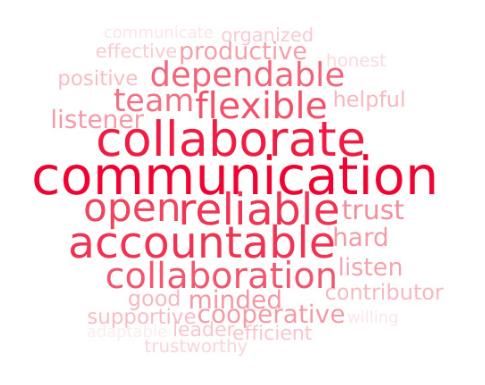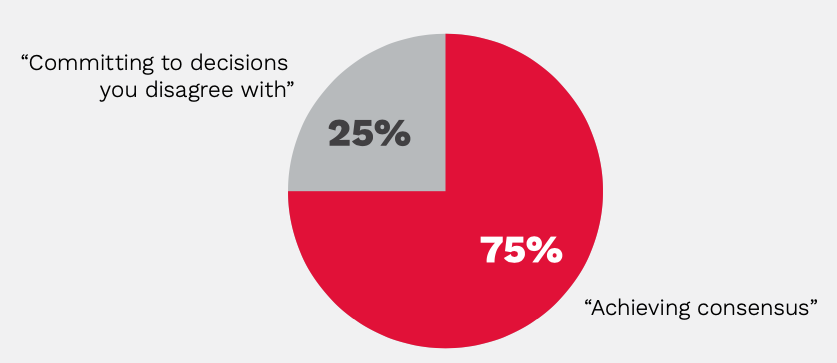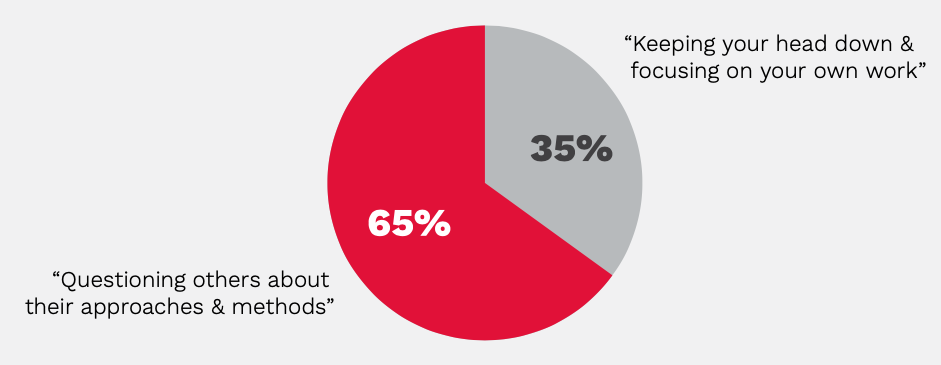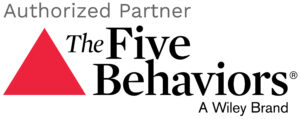Despite how much the quality of teamwork matters, most people aren’t sure how to be a more effective team member, and organizations are focusing on the wrong tools to address the skill gap.
Employees know teamwork matters, and they know what it looks like, as shown in the image at right. Respondents consider a “good team member” as an effective communicator, a willing collaborator, and a reliable and accountable worker.
But knowing what effective teamwork should be is a lot different from knowing how to be an effective team member. To this end, our research finds large disparities in what respondents think is important when working on a team. There is disagreement about whether to keep your head down and focus on your own work, as opposed to questioning others’ approaches and methods, as well as whether it’s important to achieve group consensus on decisions, instead of committing to decisions that you disagree with.
This uncertainty speaks to how little most employees know about what good teamwork requires. Based on our research and Wiley’s The Five Behaviors® products, we have found that successful team members trust and can be vulnerable with one another, engage in healthy conflict around issues while ultimately committing to decisions, and hold each other accountable to achieve their best results.
How people described qualities of a “good team member.”

Which is more important when working on a team?


As we all know, addressing the interpersonal issues that prevent effective teamwork is no easy task. It’s often quicker and easier to embrace technological tools to address the problem. Many organizations have done just that by embracing the global proliferation of team collaboration tools—an industry valued between $2.7 and 8.2 billion5. These technologies—from project management platforms to clouds and video conferencing—aim to centralize projects, streamline communications, and increase efficiency.
These tools can be especially beneficial to help teams collaborate. But they also exacerbate the hallmarks of ineffective teamwork—limited trust and accountability, unproductive conflict, and other interpersonal issues—thanks to the speed with which they now occur.
Ultimately, the problem is that such technological tools impose a technical solution onto what is fundamentally a human issue. Doing little more than mask the core issues grounded in unlearned interpersonal teamwork skills, these tools are unable to address the true cost of team dysfunction.
Successful teamwork is not about mastering subtle, sophisticated theories, but rather about combining common sense with uncommon levels of discipline and persistence. Ironically, teams succeed because they are exceedingly human. By acknowledging the imperfections of their humanity, members of functional teams overcome the natural tendencies that make teamwork so elusive.
– Pat Lencioni
5 According to IDC’s Worldwide Team Collaborative Applications Market Shares, 2018 and Grand View Research’s Team Collaboration Software Market Analysis Report, 2018.




